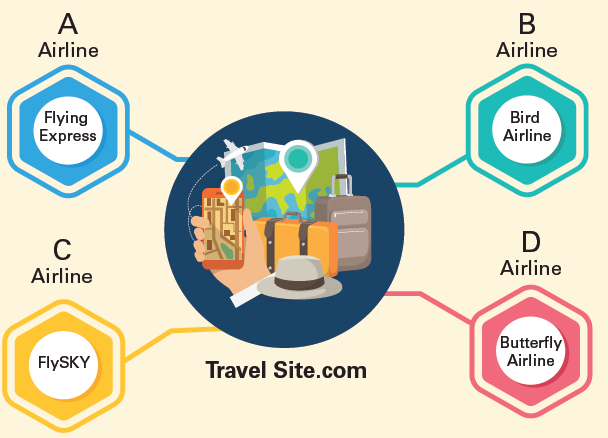 An API is part of a remote server that receives and sends responses specifying how software should interact, and enables the transfer of information between applications. It effectively provides the bridge to allow two separate systems to communicate with one another.
An API is part of a remote server that receives and sends responses specifying how software should interact, and enables the transfer of information between applications. It effectively provides the bridge to allow two separate systems to communicate with one another.For instance, if you book a hotel online and you use a price aggregating website, it is likely using an API to gather and compare pricing information from a variety of different providers’ servers. The hotel aggregator then presents them on their website on a single platform. When the price of a hotel changes, the hotel aggregator doesn’t need to update their website to reflect the change. The change is automatically updated by changes entered by the hotel provider on their remote server, i.e., their own website.
Similarly, Uber integrates maps into its application using the Google Maps API. Simply embedding a YouTube video on another platform also uses an API, although in a very elementary way.
For banks, APIs would allow third-party systems to connect with a bank’s data or allow a bank to connect to third-party data. This can also be used in transaction banking solutions for corporate clients to enable them to collect payments from a third-party platform, such as WeChat, via an API.





.jpg)
.jpg)


